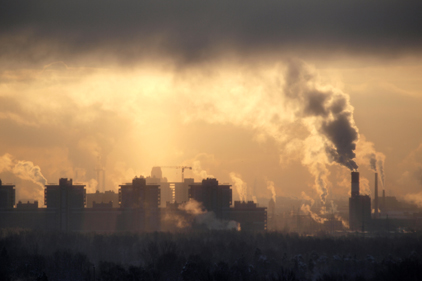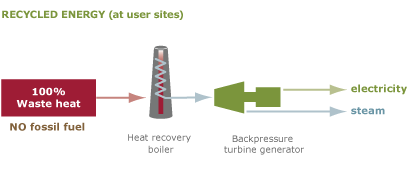Capturing Waste Heat Lowers Energy Cost, Reduces Pollution

For most industries today, more than half of the heat generated goes to waste. Industrial waste heat can be captured and reused within the same process, or transferred to an external process. As climate change, it makes energy efficiency a major concern around the world.
The burning of fossil fuels such as coal to create electricity typically wastes about 70 percent of potential total energy in the form of heat that is released into the air, rivers or lakes. Making up for that inefficiency may require burning more fossil fuels, creating even more greenhouse gas emissions in the process. Milwaukee-based Johnson Controls offers some insights into heat recovery and waste heat use.
Heat recovery is not a new concept, but government mandates, higher energy costs and improved technology are making it more attractive to large energy users.

Waste heat from power generation, often in the form of hot water, can be captured in a continual process and used directly if there is a need for lower temperature hot water. In most cases, it is boosted in temperature by heat pumps that operate much more efficiently than boilers. This recycled energy is then used for other useful purposes or to heat buildings. Depending upon the type of facility, a large percentage of the heat normally discarded to the atmosphere can be captured and recycled, improving the overall energy efficiency from 30 percent to more than 85 percent.
Heat recovery technology is now spreading throughout other countries, Johnson Controls notes. In the United States, tax credits are being offered for waste-heat recovery projects and systems. And the federal Environmental Protection Agency is working with energy users, state and local governments and other clean energy stakeholders in a voluntary program to facilitate the development of new heat-recovery projects. These new projects are helping industrial facilities to lower costs. College campuses and medical centers are using heat-recovery technology to become more energy resilient through the creation of self-sustaining microgrids. And cities are finding new ways to create energy islands that keep energy costs lower.

Read more here.
It is important to reduce pollution! If you would like to learn more how capturing waste heat can lower your energy cost, along with pollution please contact an Indeeco Rep at 314-644-4300 or https://indeeco.com/.